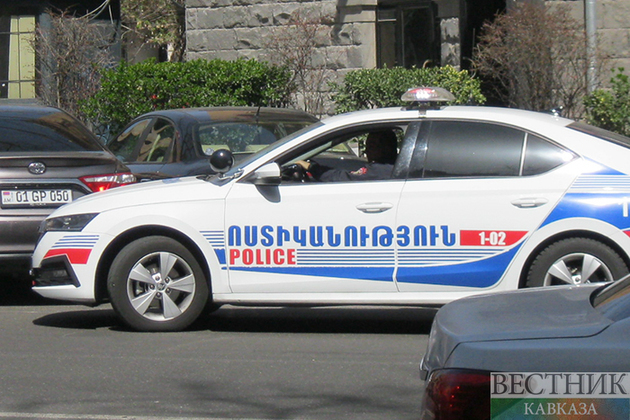Following weeks of street protests, Armenia’s political opposition is retrenching, removing a tent camp they had set up in central Yerevan while announcing that they intend to try to impeach Prime Minister Nikol Pashinyan. Members of parliament from the ruling party, meanwhile, have said they are looking into stripping opposition MPs of their mandates because they have missed so many sessions as they have been boycotting since the protests began, Eurasianet reports.
Large scale protests began in early April after the Armenian government began to signal that it was preparing to make significant concessions to Azerbaijan, such as ceding control over Nagorno-Karabakh, the territory that has been at the heart of the decades-long conflict between the two sides.
As Pashinyan made those signals more explicit – notably saying on April 13 that Armenia had to “lower the bar” of its expectations with respect to Karabakh – the protests gathered steam, leading to increasing conflicts with police and hundreds of arrests. On May 1 they took on a more sustained character, with organizers setting up a tent camp in central France Square.
But the self-proclaimed “Resistance Movement,” which was led by the two opposition blocs in parliament, both associated with the deeply disliked former ruling regime, failed to gain much traction and participation in the protests began to peter out.
In recent days, the protests also had become more violent. On June 3, protesters blocked all entrances to the main government building, demanding a meeting with Pashinyan. When that didn’t happen, they marched toward his official residence. Near the residence they clashed with police and more than 60, most of them police officers, were hospitalized with injuries.
On June 14, organizers announced they would dismantle the tent camp and regroup. In a speech at France Square one of the opposition leaders, Ishkhan Saghatelyan, acknowledged that would-be supporters may have been turned off by the association with the country’s former leadership.
“There are still people who think this is a fight for power, for the return of former rulers to power,” said Saghatelyan, deputy speaker of parliament from the Armenia Alliance and a leader of the diaspora-based party Armenian Revolutionary Federation – Dashnaktsyutyun. “We haven't yet managed to get all those people to the streets and bring them to this square.”
Opposition MPs, who have been skipping parliament sessions since mid-April, would be ending the boycott, Saghatelyan said. “We will return to parliament only with our agenda” of impeachment, he said.
By the morning of June 15 the tents and barricades around France Square were gone and it was again open for traffic. Street protests would continue, organizers promised. One rally was planned for June 16, and another two days later.
Opposition leaders also said they were working towards initiating impeachment proceedings against Pashinyan. According to Armenian law they can’t formally impeach until August 2, which will be the one-year anniversary of when Pashinyan started his second term in office.
The opposition currently has 35 of 107 seats in parliament, leaving them 25 short of what they would need to impeach the prime minister. But opposition figures have said they think there is a group of lawmakers from the ruling Civil Contract party who could vote for impeachment. Prospects for this seem slim, however, given the high degree of loyalty in the ruling party ranks.
And many have argued that the opposition and protesters have failed to offer another vision for the country, even as popular dissatisfaction with Pashinyan is deep. According to a recently released poll from the Caucasus Research Resource Center, while in 2019 70 percent of those surveyed trusted the prime minister and other ministers, in 2021 71 percent distrusted them.
“This desire [to oust the government] is quite understandable,” wrote veteran journalist Armen Dulyan in a June 15 column for Sputnik Armenia. “Certain people, who for incomprehensible reasons have appeared at the top of the power pyramid, are absolutely disliked by at least a part of the society. But to expect that at least something will change for the better after the departure of these people is also incomprehensible.”
Meanwhile, Civil Contract MPs are looking into the possibility of stripping 14 opposition lawmakers of their mandates because they have missed so many sessions of parliament. "There is a discussion on this going on in our faction, which is the result of public demand,” one Civil Contract MP, Artur Hovhannisyan, said during a June 16 parliament briefing. “Many citizens have seen how the opposition behaves, how they use their parliamentary mandate,” adding that there wasn’t a consensus in the ruling party on the issue. “Different deputies in our faction have different opinions and no decision has been made,” he said.
Stripping MPs of their mandates because of missing sessions for organizing protests would be an unprecedented step in Armenia, and it would have to be approved by the Constitutional Court.






